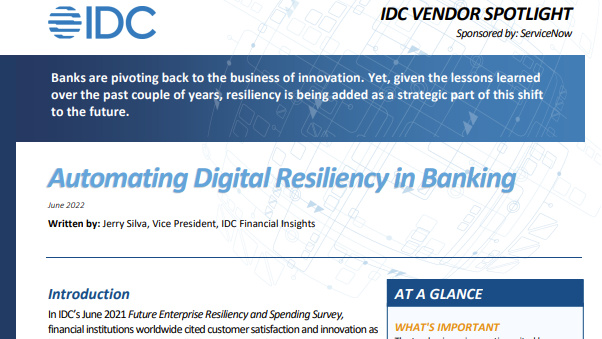Cardiff pilot to enforce new software piracy powers
An awareness campaign being launched this summer will test the new Trading Standards powers to investigate any unlawful use of business software.


A pilot being launched in this summer could result in Cardiff Trading Standards being the first to flex new powers to clamp down on software piracy.
The local trading compliance authority is joining forces with anti-piracy software organisation the Federation Against Software Theft (FAST) to educate businesses about the legal implications of Section 107A of the Copyright, Designs and Patents Act 1988.
The Act holds that any business, which unlawfully installs software for business use, is potentially at risk of a criminal investigation by Trading Standards.
The pilot campaign has been driven by FAST, which has provided a fact sheet explaining businesses' legal position in regards to the law and software piracy. The information will be provided alongside a letter sent to local businesses from Cardiff Trading Standards advising of random checks throughout the pilot period.
John Lovelock, the federation's chief executive, told IT PRO that software copyright has been covered by the law on the statute books for nearly 20 years, but never enacted. When Prime Minister Gordon Brown announced seed funding of 5 million in late 2007 for Trading Standards to enforce software copyright, it gave the body's officers the duty and power to enforce the law against criminal copyright offences.
"We're hoping to also provide a software assessment tool, training and forensic expertise to Trading Standards officers to make sure any investigation carried out is done so in a way that could be admissible as evidence in a court of law," said Lovelock.
If it can be proved that a business owner knowingly permitted the unlawful use of software in their organisation, Trading Standards could decide to get the Crown Prosecution Service involved to bring criminal charges, he added.
Get the ITPro daily newsletter
Sign up today and you will receive a free copy of our Future Focus 2025 report - the leading guidance on AI, cybersecurity and other IT challenges as per 700+ senior executives
Those unwittingly found to be without the necessary licences will have to pay the software providers to maintain their use of the software.
Dave Holland of Cardiff Trading Standards added: "With the enactment of the criminal provisions of the law on copyright, there is a greater emphasis on legal compliance. I hope that this proactive programme will motivate business to put measures in place to avoid any legal action."
"Later this year, our officers will conduct a number of random inspections to ascertain how well businesses are performing against legal requirements," he added. "At this stage, our approach is focused upon helping business meet legal requirements and remain competitive in the current economic climate."
A 25-year veteran enterprise technology expert, Miya Knights applies her deep understanding of technology gained through her journalism career to both her role as a consultant and as director at Retail Technology Magazine, which she helped shape over the past 17 years. Miya was educated at Oxford University, earning a master’s degree in English.
Her role as a journalist has seen her write for many of the leading technology publishers in the UK such as ITPro, TechWeekEurope, CIO UK, Computer Weekly, and also a number of national newspapers including The Times, Independent, and Financial Times.
-
 Cleo attack victim list grows as Hertz confirms customer data stolen
Cleo attack victim list grows as Hertz confirms customer data stolenNews Hertz has confirmed it suffered a data breach as a result of the Cleo zero-day vulnerability in late 2024, with the car rental giant warning that customer data was stolen.
By Ross Kelly
-
 Lateral moves in tech: Why leaders should support employee mobility
Lateral moves in tech: Why leaders should support employee mobilityIn-depth Encouraging staff to switch roles can have long-term benefits for skills in the tech sector
By Keri Allan
-
 Data sovereignty a growing priority for UK enterprises
Data sovereignty a growing priority for UK enterprisesNews Many firms view data sovereignty as simply a compliance issue
By Emma Woollacott
-
 Elevating compliance standards for MSPs in 2025
Elevating compliance standards for MSPs in 2025Industry Insights The security landscape is set to change significantly in the years to come with new regulations coming into effect next year, here's how the channel needs to adapt
By Ross Brewer
-
 How ready is your company for NIS2?
How ready is your company for NIS2?Supported Content The EU’s latest cybersecurity legislation raises the stakes for enterprises and IT leaders - and ensuring compliance can be a daunting task
By Ross Kelly
-
 Top data security trends
Top data security trendsWhitepaper Must-have tools for your data security toolkit
By ITPro
-
 Conquering technology risk in banking
Conquering technology risk in bankingWhitepaper Five ways leaders can transform technology risk into advantage
By ITPro
-
 Advancing your risk management maturity
Advancing your risk management maturityWhitepaper A roadmap to effective governance and increase resilience
By ITPro
-
 When banking works, the world works
When banking works, the world worksWhitepaper Five ways automated processes can drive revenue and growth across your bank
By ITPro
-
 Automating digital resiliency in banking
Automating digital resiliency in bankingWhitepaper Prioritize investment in solutions that mitigate a lack of digital resiliency when disruptions strike
By ITPro